Directed by Mick Jackson
United Kingdom, 1984
The city of Sheffield in England from 1984 looks like a very different world. People are shopping in now-lost department stores, like Debenhams and Woolworths. Headlines come from newspapers and tinny voices on a transistor radio. Advertisements for cigarettes decorate the high street, and dimly lit pubs are filled with the dense fug of tobacco smoke. There are no mobile phones in sight but we get a glimpse of the future as a girl trudges through her school homework, her ears covered with the spongy orange earphones of a Sony Walkman cassette player. And then the bomb drops…
This is the setting for the remarkable documentary-style drama, Threads. A film that attempted to show the unshowable: the impact of a nuclear attack on a British city. In the early 1980s, anxieties about a nuclear war were at a level not seen since the 1962 Cuban Missile Crisis. Ronald Reagan and Margaret Thatcher were dialling up the Cold War rhetoric, nuclear-armed cruise missiles arrived in the UK, and the government’s ‘Protect and Survive’ leaflets optimistically advised on the construction of a shelter underneath your kitchen table.
The artist Raymond Briggs had produced a graphic novel titled When the Wind Blows, depicting an elderly couple living through a nuclear war. And an anti-war song, ‘Two Tribes’ by the band Frankie Goes to Hollywood went straight to number one in the charts where it stayed for nine weeks.
I remember poring over a newspaper, the Daily Mirror, where they recorded a missile count of the two superpowers and detailed the effects of radiation sickness - S
Threads was directed by Mick Jackson and written by Barry Hines, best known for his novel that inspired Ken Loach’s classic film, Kes. The vivid detail of his writing gives what begins as a kitchen-sink drama a realism that makes what is to follow so horrifying.
Following the invasion of Iran by the Soviet Union, international tensions escalate but in Sheffield the focus falls on the lives of two families: the working-class Kemps and the middle-class Becketts. Jimmy Kemp (Reece Dinsdale) lives in a council flat with his unemployed father and the rest of his family. After a night messing around with Ruth Beckett (Karen Meagher) in his car, placed somewhat prophetically on a cliff-edge, the couple later learn that Ruth is pregnant.
The Kemp family are introduced to the Becketts in their large Victorian home and as they plan their future, in the background the television news reports that the United States has deployed B-52 bombers to Turkey. Then a US submarine is sunk in the Persian Gulf. A narrator informs us that the government has emergency plans in place as the chief executive of Sheffield Council removes a folder labelled ‘War Book’ from his desk to make preparations. Children in a playground watch, bemused, as a van delivers blankets to their school – to protect against atomic radiation?
As fighter jets scream overhead, some of the populace flee to the countryside, believing it will offer more safety. The council assumes emergency powers and attempts to control panic-buying and traffic chaos, while anti-war protesters are detained as potential ‘subversive actors’. But still, a quiet denialism persists for many. Jimmy and Ruth are decorating their newly awarded council flat. One morning, he is busy at work in a timberyard and Ruth, suffering with morning sickness, visits her parents when the first bomb hits.
That famous public alert, the four-minute warning, sounds and a teleprinter announces on screen that a single nuclear warhead has exploded above the North Sea, destroying all electrical and telecommunications systems. More is to come as multiple missile salvos hit the country. It is the detail that haunts: as people run amok, mothers wrest their babies out of pushchairs but have no idea what to do; a woman frozen in terror, wetting herself as she watches a mushroom cloud rise; Jimmy’s father sitting in the toilet, trousers around his ankles. And arguably the most fortunate, like Jimmy himself, are killed instantly by the blast.
It is, however, in the hours, days, and months after the storm that the true horror unfolds. As a spider spins a web over the film’s opening credits, the narrator intones:
Our lives are woven together in a fabric. But the connections that make society strong also make it vulnerable.
And it is those threads that we see broken as the portrayal becomes ever more bleak.
Scenes of destruction are interrupted by photographic stills of a landscape strewn with corpses and the narrator spells out the literal and metaphorical fallout. The blunt matter of fact tone reinforces that this is no horror film. There is no dramatic arc or heroism to be found here. It is pointless to seek reassurance. Sheffield Council officials, the newly designated War Council, are found dead in their bunker a few weeks after the attack.
Later in the year, on the 25th December we find Ruth, who has given birth to her baby alone in a barn, sitting surrounded by a group of fellow travellers malformed by radiation sickness. It is the grimmest Nativity scene imaginable. Four weeks later, we watch as she wanders across a medieval landscape – Breugel’s painting, The Triumph of Death comes to mind. There is no water, no electricity, no sanitation. Looters are subject to summary execution and even there it doesn’t end.
Threads takes us forward five, then ten, years into the future. A future where a macerated Ruth, eyes milky with radiation-induced cataracts, dies. Her daughter survives to continue living – or is it simply existing? – in a society where everything, including language, has collapsed. Watching Threads now, 40 years on, some aspects may seem dated. The past is indeed a foreign country. Perhaps therein lies the danger: we forget that those threads are just as fragile now as they ever were.
As the film went on my Google searches got increasingly bleak.
Started off with ‘nearest bomb shelter to Streatham’
And by the end ‘what does rat meat taste like’ - C
Reids’ Results (out of 100)
C - 80
T - 79
N - 82
S - 82
Thank you for reading Reids on Film. If you enjoyed our review please share with a friend and do leave a comment.
Coming next… Hundreds of Beavers(2022)

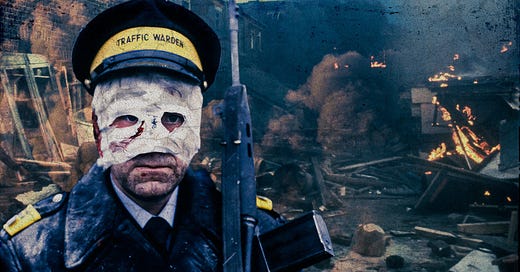



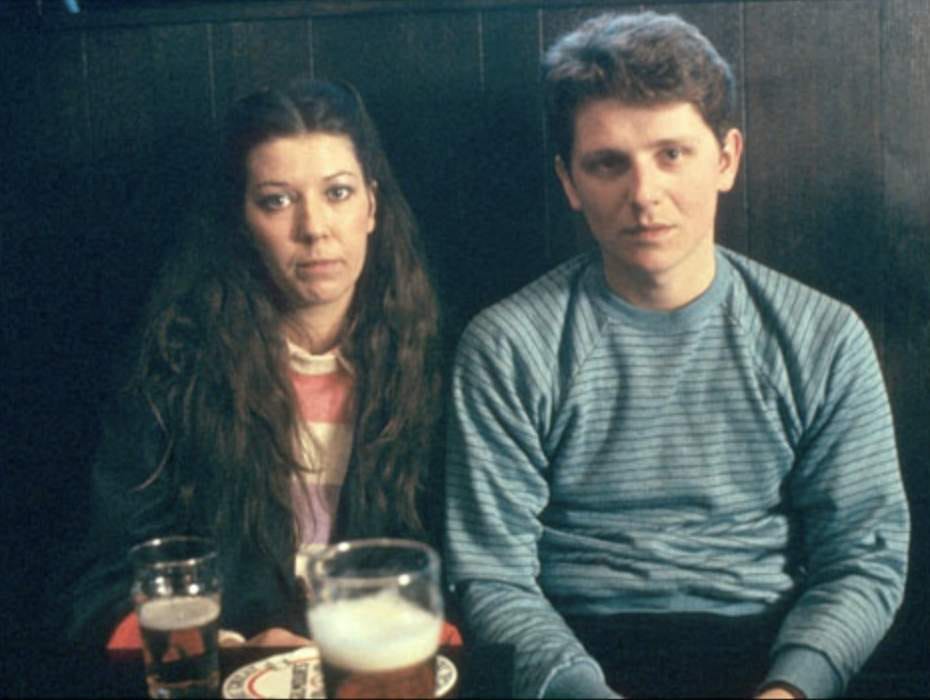
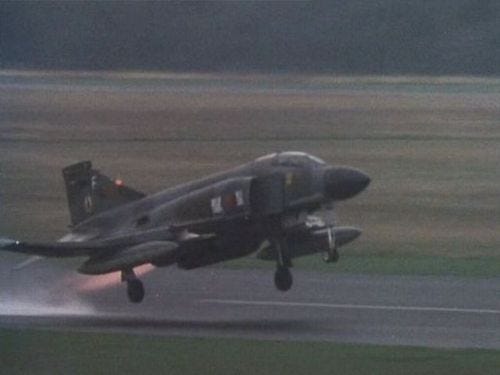
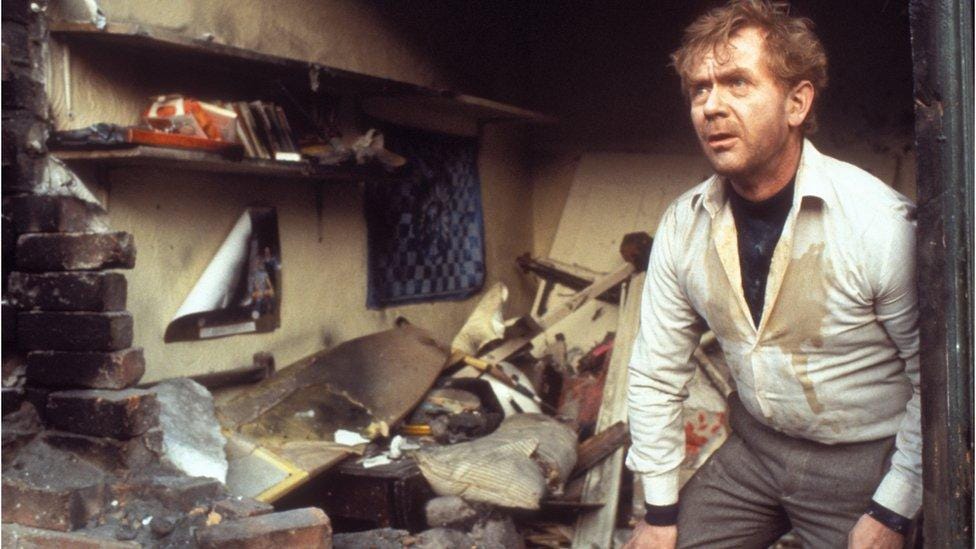
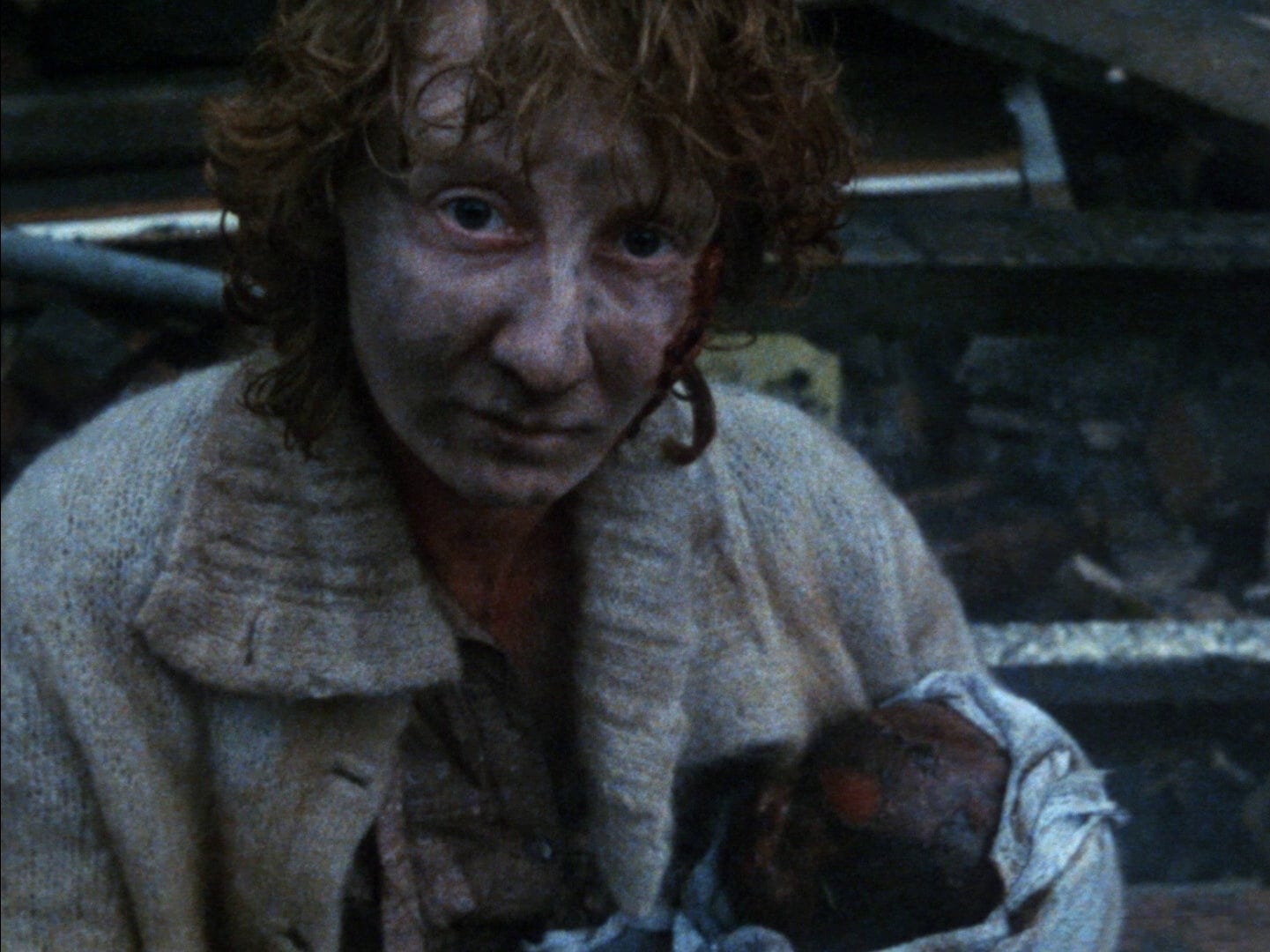
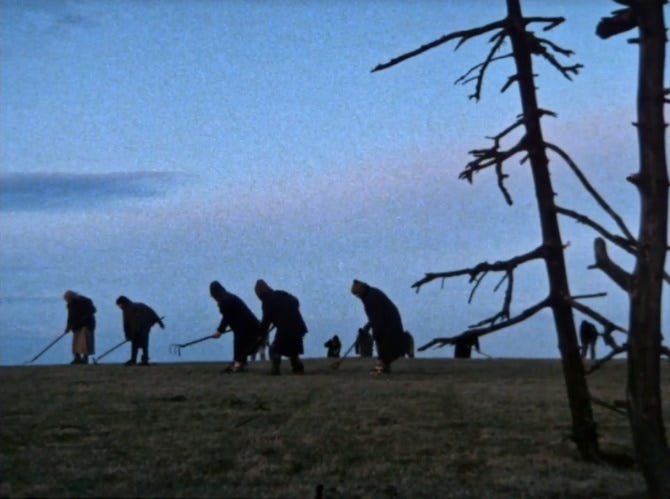
Gamey and dense, like a cross between rabbit and venison. That being said, fortunately ReidsonFilm are vegetarian so we would likely be sticking to the irradiated cans of baked beans where possible.
A vivid review of a film we should all watch. And what does rat taste like?